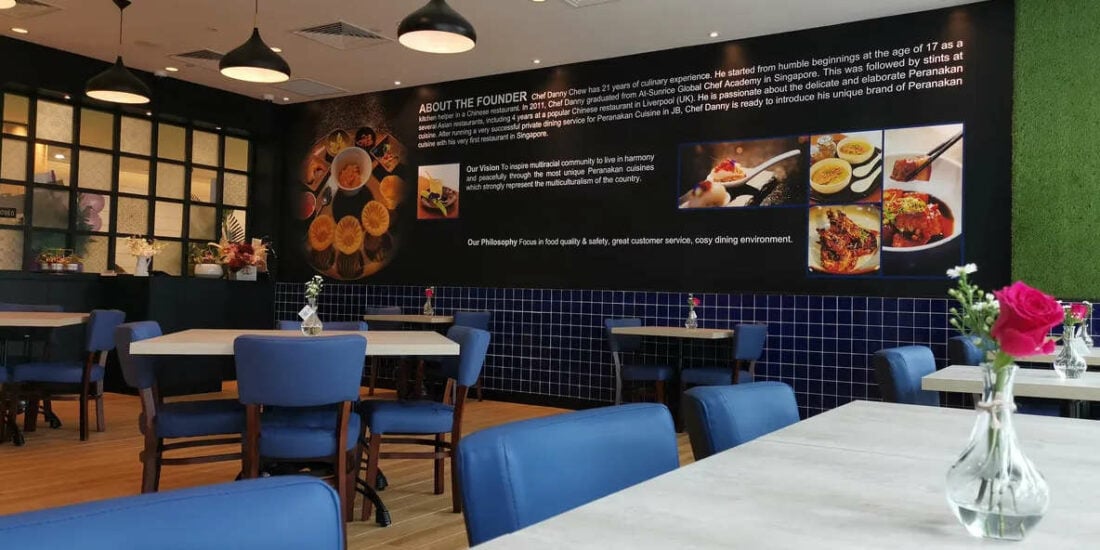
The Future Lawyer and Cross-border Legal Practice
Rapid globalisation and unprecedented growth in the movement of goods, services, capital and people across international borders is, along with the rapid technological change that propels it, perhaps the most significant challenge that 21st Century legal professionals face.
On a recent visit to Singapore a short taxi ride from the Sands Expo and Convention Centre to my hotel provided a 10-minute conversational snapshot of just how interconnected our world has become. The driver wanted to know what event I had attended, with a view to going back to pick up more customers. After learning it was a Law Society conference with over 400 delegates, his talk quickly turned to his own legal circumstances. Married to a Vietnamese woman, he had bought a property in Ho Chi Minh City – long before the prices there went up – because he couldn’t afford to buy property in Singapore and he’d have a better retirement – 10 years away – in Vietnam.
In just a brief time this conversation revealed a person who had potential legal matters in property law, family law, elder law, retirement law and probably citizenship and residency laws across two ASEAN jurisdictions. When he learned I was from New Zealand, he added another dimension. His mother, who had been in a 10-year de facto relationship with a New Zealander, had just finalised a settlement agreement under New Zealand’s Property (Relationships) Act.
Wow! Cross-border relationships that span three countries, across 9,000 kilometres and four time zones, with three sets of laws – and three sets of lawyers! All in a short 10-minute taxi ride. Plus, a brief conversation about taxis in Kuala Lumpur (where I am based) and Singapore – a tale of two very different regimes in two very different cities that are just a brief one hour’s flight apart. There’s enough for an article of its own on transport regulation and enforcement, the disruptive transformation of ride sharing apps and its ultimate monopolisation by one international provider.
I told the driver there would be lots of foreign lawyers in town for the 29th Annual Conference of the Inter-Pacific Bar Association (IPBA). It was Singapore’s turn to host this event, which brings together, from around the globe, over a thousand commercial and corporate lawyers who service the needs of corporate clients engaged in cross-border transactions. The conference’s theme was “Technology, Business and Law – Global Perspectives” and the programme covered broad ranging legal issues on developments in global and regional trade, new technology and emerging trends. The conference also showcases the work of the IPBA’s 24 specialist committees, through specialist conference sessions on almost every imaginable aspect of cross-border legal practice.
One interesting and entertaining plenary session of the conference debated the pros and cons of clients resolving cross-border disputes through arbitration versus an International Commercial Court: The Rise of International Commercial Courts across the world – Its Impact on International Arbitration. The conference also provided a showcase for Singapore’s International Commercial Court, which is one of the rising stars of the world of international commercial courts.
Engaging with international lawyer groups, such as the IPBA, provide an excellent means by which legal practitioners in Singapore and elsewhere can help prepare themselves for future legal practice in a world that is becoming more and more interconnected.
CFE Working Group Report on Legal and Accounting Services
Indeed, lawyers becoming involved regionally and internationally is one of the key messages of the April 2017 report of Committee for the Future Economy (CFE) Working Group on Legal and Accounting Services. The working group’s terms of reference had been to develop vibrant and competitive legal and accounting services.
The CFE report made 15 recommendations for strengthening Singapore’s position, as a global leader for legal and accounting services, with four key thrusts:
1. Strengthening global market position;
2. Transforming the legal and accounting sectors;
3. Building thought leadership; and
4. Equipping legal and accounting professionals to be future-ready.
It identified nine high growth practice areas for the region, which could help drive demand for Singapore’s legal and accounting services.
The CFE report also called for Singapore’s lawyers and accountants “to strive towards becoming holistic trusted business advisers to their clients with the ability to ‘see around the corner’ to guide clients in making strategic business decisions.”
The report identified three dimensions in the future development of Singapore’s lawyers and accountants:
- Core – the traditional core of values (e.g. integrity) and technical skills and knowledge.
- Value-adding – adding value through acquiring regional knowledge and networks, regional legal expertise and knowledge of client industries and their needs.
- Holistic – adopting an holistic approach that enables lawyers to go beyond being just a lawyer and to become a trusted business adviser, one who has the ability to see around the corner and guide the client in strategic business decisions.
The CFE report was foremost in mind for the Law Society of Singapore when The College of Law and the Law Society first met to discuss how the two organisations could work collaboratively in the interests of developing Singapore’s lawyer of the future. It provided a foundation for the two parties 19 March 2019 Memorandum of Understanding (MOU).
The Strategic Importance of ASEAN
The importance of ASEAN was another foundation of the MOU. Singapore being at the centre of ASEAN and ASEAN being at the centre of Asia, gives Singapore’s lawyers a unique opportunity of adding value (as recommended by the CFE report) through acquiring regional knowledge and networks, regional legal expertise and knowledge of client industries and their needs.
The College of Law recognised the fundamental importance of ASEAN to the two nations of Australasia when it established its Asia operation in July 2016, with a focus on the new ASEAN Economic Community (AEC) founded on 31 December 2015.
The AEC represented the next big step for the 10-nation Association of South East Asian Nations (ASEAN), founded in 1967 by Indonesia, Malaysia, the Philippines, Singapore and Thailand – and later joined by Brunei, Cambodia, Laos, Myanmar and Vietnam under a new founding Charter in 2007.
The AEC – which has no ambitions of becoming an EU-style political union – aims to transform ASEAN into a closely integrated regional free trade area, with the free movement of goods, services, investment, capital and skilled labour. If ASEAN were one country, it would be the world’s 7th largest economy, with a GDP of over US$2.4 trillion – and strong economic growth will see it ranked 4th largest by 2050. ASEAN is a market of more than 630 million people, with the world’s third-largest (and most youthful) labour force.
ASEAN has also become the central hub of Asia, through developing ASEAN+1 free trade agreements (FTAs) with Australia and New Zealand (jointly), China, Japan, Korea and India. ASEAN is also leading the negotiations for the Regional Comprehensive Economic Partnership (RCEP) – a regional FTA involving ASEAN and its six ASEAN+1 FTA partners – also known as ASEAN+6.
The ASEAN+6 (RCEP) region, with a combined GDP of US$23 trillion (about 30 per cent of global output), has potential to transform the region into the world’s largest integrated market – with over 3.4 billion people.
ASEAN+6 Cross-border Legal Practice Programme
ASEAN’s strategic importance to Australia and New Zealand, as a bridge to South East Asia and as a trading hub between Australasia and four large Asian economies, made the ASEAN+6 free trade area the logical choice for the focus of a new jurisdictional stream in the LLM (Applied Law) programme – ASEAN+6 Cross-Border Legal Practice.
The College of Law’s ASEAN+6 Cross-border legal practice LLM (Applied Law) was developed in 2017 in association with the Inter-Pacific bar Association. The programme is designed to assist the development of regional expertise in cross-border transactions. It currently covers seven cross-border practice areas with more on the way:
- ILP3 – ASEAN+6 Commercial Law Practice
- ILP4 – ASEAN+6 Mergers and Acquisition Practice
- ILP5 – ASEAN+6 Banking and Finance Practice
- ILP6 – ASEAN+6 Intellectual Property Practice
- ILP7 – ASEAN+6 Arbitration and Dispute Resolution Practice
- ILP9 – ASEAN+6 Trade and Investment Practice
- ILP10 – ASEAN+6 Capital Markets Practice
The MOU between the Law Society and the College envisages an LLM (Applied Law) in Singapore legal practice that will build upon the ASEAN+6 programme and provide it with a strong underlying foundation.
The Singapore LLM applied law programme will build upon Singapore’s strategic location at the heart of ASEAN and the nation’s strategic direction will inevitably result in an increasing preference in international contracts for its laws to be agreed upon as the governing law and for its courts to be chosen as the preferred jurisdiction.
The process of globalisation has already seen significant advances, through international conventions and international institutions, in smoothing the path of cross-border commerce. Nation states have subjected themselves to enforceable international dispute resolution procedures and are slowly harmonising their laws with international norms.
However, so long as there are nation states there will always be local laws and local ways of doing things. With legal professions around the globe defined by their national geographical jurisdictions this in unlikely to change any time soon. The world’s legal professions will always therefore need to act locally, but they will also need to think more globally.
Lawyers need to be aware that there other business advice professionals, such as accountants, who are not similarly restricted by national boundaries.
The International Financial Reporting Standards (IFRS) issued by the International Accounting Standards Board (IASB), an independent international standard-setting body based in London, has truly internationalised the accounting profession. So much so, that in 2013 the Institute of Chartered Accountants Australia and the New Zealand Institute of Chartered Accountants merged to create Chartered Accountants Australia and New Zealand.
It is impossible to imagine such a merger ever happening between the law societies that govern the legal professions of Australasia. The six states and two territories that make up the Commonwealth of Australia have never been able to agree on a national profession, let alone a merger with the New Zealand legal profession. Yet it is probably hard to find any two other counties whose laws are so harmonised and whose professions already have mutual recognition.
Could you imagine a merger between the chartered accountants organisations of Malaysia and Singapore? IFRS certainly makes it feasible. Could you ever imagine a merger between the two nations’ law societies? Unlikely.
Given this intrinsic ink between lawyers and national jurisdictions, lawyers need to think about how they can overcome the obstacles this presents – especially when compared to their rivals in the accounting profession.
Lawyers need to be vigilant to ensure that the laws and rules designed to protect the consumers of legal services and to protect lawyers from non-qualified local competitors and legally qualified foreign lawyers do not in fact have unintended consequences – and constrain them from becoming the trusted “holistic” business advisers envisaged by the CFE report. Non-business clients with cross-border matters, like the loquacious taxi driver, should also be able to find a local lawyer who is a trusted adviser in the same holistic sense.
With technological innovation and Artificial Intelligence (AI) disrupting the traditional legal services market, the future is limited for the lawyer whose competencies are confined to the core of values and technical expertise. Other players will become the client-focussed holistic advisers and they may perhaps use the services of the skilled technical expert lawyer.
The lawyer’s future in a globalised connected world will best be secured through adopting the adding value and holistic approach recommended in the CFE report.






